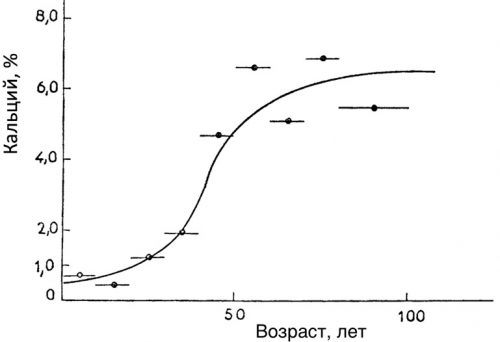My view is that "the cause" is a system that prevents cells from differentiating properly. Senescent cells are part of this cause in that they secrete SASP which includes IL-10 which engages with the Janus Kinase of other cells which reduces NF Kappa B which cuts SLC25A1 which results in less Acetyl-CoA in the nucleus so the histone is inadequately acetylated and cells become senescent. This causes a number of the diseases of aging (osteoporosis, sarcopenia - good evidence, NAFLD, Diabestes - hypothesis neither proven or disproven).,
This results in increasing mortalitty as people get older (Gompertz).
I have already published a post on how the extracellular matrix acts on cells and how gene expression changes due to this interference.
If you think very carefully, then this is logical: the cell has neither eyes nor ears, and it somehow needs to understand what tissue it is in. The cell in the tissue is guided by the degree of rigidity of the environment and adapts to it.
Watch this video, I will also post a translation from Russian here (because I am from Russia):
(0:00 – 0:21) «Our bodies are made up not only of cells, but also of a special environment surrounding cells called the extracellular matrix. The structures of the extracellular matrix - such as muscles, or blood vessels - are largely formed by elastin and collagen fibers, which mechanically press on the surface of the cells.
(0:21 – 0:29) And there are various receptors on the surface of the cells - for example, integrins (which are marked here in yellow).
(0:30 – 0:43) When the cell moves along the fiber, these receptors eventually bind to the fibers of the extracellular matrix. And the cell, which thanks to these receptors gets hooked on the fiber, begins to change its shape - to stretch.
(0:44 – 1:23) As a result of such tension, signal proteins inside the cell are activated, through which these tension signals are transmitted by the outer cell membrane to the very center of the cell, where the nucleus with the genetic code recorded in DNA is located.
(1:24 – 1:40) If the extracellular matrix is young, elastic, soft, and the matrix fibers are easy to stretch, it does not cause a lot of tension in the cell itself (you will soon see this).
(1:41 – 1:49) Here, it shows how when the extracellular matrix is young, the fibers stretch quite easily and the cell itself can deform.
(1:50 – 2:13) However, in a rigid matrix (even more so in a matrix with a suboptimal amount of collagen fibers) this interaction with the cell receptors leads to more tension. As a result, the cell adequately responds to the stiffer properties of the matrix, and the stiffness signals are also transmitted via signaling molecules to the cell nucleus, where the DNA code is located.
(1:50 – 2:13) Also, depending on the stiffness of the extracellular matrix, the throughput of the ion channels, through which various ions of the intercellular medium enter the cell, also affects the work of the cell's signaling molecules.
(2:28 – 2:24) Stiffness signals from the cell surface and signals of ions entering the cell affect transcription factors located in the cell nucleus - these are the factors that affect the operation of DNA. They, in turn, change how our genes work.
(2:45 – 3:06) Thus, the elasticity and rigidity properties of the extracellular matrix directly and rigidly govern the work of genes, govern the entire fate of the cell. How the DNA molecules are read depends very much on the extracellular matrix.
(3:07 – 3:34) If the extracellular matrix is too rigid and inelastic, cell can start to "not feel good", divide slower and slower, produce proteins that don't work properly, age, and lose its ability to divide at all (like the one in the video now)».
That is, the extracellular matrix itself directly affects gene expression! This connection is very powerful, because it helps cells navigate where they are and behave accordingly.
If the environment in the tissues of the vessels is more rigid, then the genes begin to work in such a way that the cells of the vessels become not smooth muscle cells, but cartilage tissue cells. There is a study on this:
The problem of aging lies in a completely different plane, you know?
The growth of calcium deposits depending on age (growth is associated mainly with an increase in the rigidity of the extracellular matrix):
Do you see how bad it is?
Read all of this text with comments:
Pay special attention to the fact that it is not possible to extend life after 90 years even in states with developed medicine (because the main problem is not solved: the increase in the rigidity of the extracellular matrix). You will simply die with all your healthy cells. Like a lab mouse that's gorged on senolytics.
The simple removal of senescent cells is an improvement in one's own health. But, apparently, it has nothing to do with real life extension.
Senolytics will simply increase the average life expectancy, and nothing more. After 90 years people will still die like flies. Even if they overeat with senolytics. Because they will be compressed by "steel cables" of the extracellular matrix penetrating every organ and every vessel.
This is a very terrible truth. But if you really want to defeat AGING, then it seems that you need to lead the direction of research towards the extracellular matrix.
Edited by Kentavr, 01 August 2022 - 08:21 AM.






















































